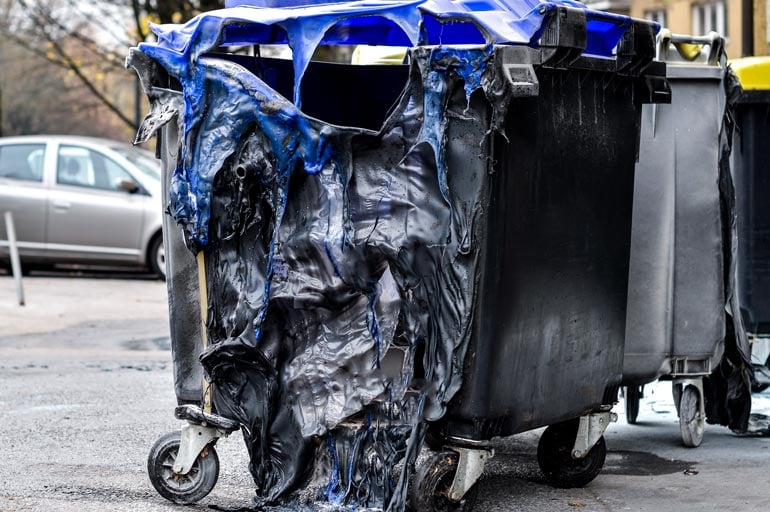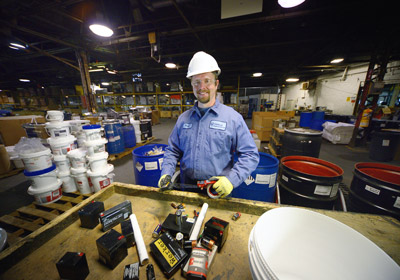The holidays are almost here, which means you’ll be buying toys, electronics, and all sorts of other gadgets for the kids and family members in your life. And modern gifts require a lot of lithium ion batteries to power them. You find them in everything from remote controlled cars and electric scooters, to cell phones, wireless headphones, handheld games, hoverboards, Nerf guns, and a lot of toys and devices in between.
The problem is that after a few months when a toy stops working or is broken, many parents will simply throw it away, along with its lithium ion batteries. Not only is it a waste of the valuable material within them, it is also a serious hazard if they are not disposed of properly.
Why you shouldn’t throw lithium ion batteries into the trash
Did you know that it is illegal in many states to place lithium ion batteries in the trash? The reason is that they can pose a dangerous fire hazard and contain corrosive materials.

Placing them in the trash or in a municipal recycling bin, the batteries can come in contact with flammable materials like plastic, paper, and cardboard. When they are compressed in the back of a waste collection truck or at a recycling center, they risk being punctured or crushed, which can cause a spark that may ignite the surrounding materials.
The chemicals within the batteries may also be released, leading to potential health hazards for the people handling the trash. If they make it to a non-hazardous waste landfill, the harmful chemicals within the batteries may leak out and contaminate the soil and groundwater.
Recycling these batteries — not throwing them in the trash — is the only way to avoid these harmful situations.
The materials in the batteries have a limited supply
Lithium ion batteries require critical materials — cobalt, nickel, graphite, and lithium. By recycling them, these materials can be repurposed to create new batteries. Recycling lessens our dependence on new resources and puts valuable materials to further productive use, instead of letting them sit idle and possibly causing danger in a landfill that was not designed for them.
How to recycle lithium ion batteries?
Recycling lithium ion batteries involves separating their individual components and recovering the parts that can be used again. The battery is shredded, and you’re left with a sludgy “black mass” composed of lithium, manganese, cobalt, and nickel.
The black mass is refined, so those elements can be utilized again in new batteries. Any other materials present in the batteries, like aluminum, copper, paper, or plastic, are also recovered, recycled, and reused in other production or industrial processes.
The key is to put your old batteries in the hands of people who will recycle them properly, using the process outlined above. Let's look at some ways you can assure that they are in the right hands.
What you can do this post-holiday season
You have several options:
- Toys in good working order – Instead of throwing away toys that still work, donate! Let them find a new home so they can continue to be enjoyed by other children.
- Broken toys and devices – The first thing to do is check with the toy manufacturer to see if they provide a recycling program for their products. If not, you can search Call2Recycle to locate an e-waste drop off point in your area.
- Old batteries – If you want to keep your toy or device but discard the batteries, there are several chain stores throughout the country that have free collection boxes. Once again, Call2Recycle can be very helpful in locating a collection point for your old batteries.
- Community household hazardous waste days – Your community should have household hazardous waste days during the year. This is a great way to dispose of many household hazardous materials. Check your local city or town's public works department for more information.
Ensuring the lithium ion batteries from old, broken, or unwanted toys find their way to the proper recycling centers instead of the trash is a gift we all can give to each other. Recycling these batteries cuts down on harmful waste in landfills, reduces our need for costly new resources, and helps prevent dangerous situations, like fires and exposure to corrosive chemicals.
In the months following the holidays, let's all do our part to help keep lithium ion batteries out of the garbage!


